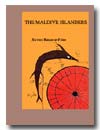Over
the ages some islands of the Maldives have become famous
for the intellectuals they produced. The islands of Addu
and Fuamulaku have produced a long line of chief justices
and magistrates. Vaadoo in Huvadu Atoll produced the eminent
scholar who is widely acknowledged as the father of religious
scholarship in the Maldives. Gan Island in Haddunmathi produced
the father of Maldivian history. Coming to the north of
the country, Kelaa Island in Thiladunmathi has had its share
of intellectuals. A question that naturally arises is: Why
has this handful of islands produced more intellectuals
than all the other nearly-200 islands combined? (Fura Malé
is excluded from this discussion because it is well known
that throughout history intellectuals from other islands
have continued to migrate to Malé.)
In sociology there is a raging debate regarding the roles
of nature versus nurture in the development of intelligence.
Many scientists hold the view that genetic inheritance is
the prime determiner. There is an equally large body of
scientists holding the view that environment is the key
factor. Let us examine how we could apply these theories
to the Maldivian situation.
Genetic differences could occur within a population in one
of two ways. One is Darwinian type mutation. The other is
in-migration. If one is to go by history, the Maldivian
population has had a continuous influx of foreigners from
places as diverse as Sri Lanka, Bengal, Malabar, Gujurat,
Achin, Iran, Morocco, East Africa and the Europe. They would
have definitely added to the gene pool. But would they have
resulted in inter island differences? There appears to be
no historical evidence of this happening. There is no recorded
instance of a group of foreigners colonizing any individual
island, if one excludes the settlement of King Hadhi Hassan's
slaves in Noonu Atoll.
On the other hand, internal migration from one island to
other was quite common as documented by Hassan Ahmed Manik
in his report "Topological Changes in the Maldives". Thus
all evidence points to a wide intermixing of the genetic
pools in the islands, rather than their isolation.
The uniform distribution of the genetic disease thalassemia
throughout the archipelago provides further conclusive proof
of the intermixing of genes in the Maldives. We may therefore
safely exclude "nature" as a cause of the inter island intellectual
differences. We are then left with "nurture".
Simply put, the nurture theory says that environment plays
the major role in intellectual development. In its most
elementary form, it explains how children of professionals
like teachers, doctors and lawyers do well in school. In
the Maldivian context it may explain why some families have
excelled. But even a casual glance at the list of intellectuals
would show
that their distribution goes well beyond the families. In
this discussion a family may be defined as those living
under the same roof, since we have already excluded genetics
as a cause in our above discussion.
We are therefore left with no choice but to go beyond the
immediate family environment for an explanation. What is
the unique feature in the social or physical environment
of some islands that have made them a cradle of intelligence?
From a close observation of the social habits of some of
these islands, I have identified such a unique factor that
could shed light on the issue. It is the inter island differences
in defecatory habits. Let me detail out the theory.
The Maldivian population in the past could be divided according
to their defecatory habits into two groups, beach defecators
(beachers for short) and forest defecators (foresters).
Over the centuries, foresters had been contributing to the
fertility of the soil of their islands. Ultimately these
islands grew into agricultural islands. This helped intellectual
development in two ways. First, it gave more time to the
islanders to stay on land and pursue intellectual activities.
Second, it improved the nutritional content of the food
and protected babies from micronutrient deficiencies that
retarded their growth.
On the other hand the beachers left their excreta on the
beach to be washed away by the waves. The soil in their
islands remained sandy and unsuitable for agriculture. The
islanders had no choice but to take up fishing as a livelihood.
In the days before mechanization, fishing was such a time-intensive
occupation that islanders rarely would have had the luxury
of staying on land during the day. In the night, without
electricity, education would have been a non-starter. Micronutrient
malnutrition would also have taken its toll. It is no wonder
therefore, that the beachers got left behind.
I must stress that the above hypothesis on the role of defecatory
habits on the development of intellect remains to be tested
scientifically. The research needed for this needs to be
conducted soon. Otherwise rapid modernization could change
island environments to such a degree that no accurate data
would be available. To some extent, it may already be too
late, and the theory may never be proved. But on the face
of it the beacher/forester theory appears to explain adequately,
the observed intellectual differences among the islands.
Addu
Intellectuals


 rss feed
rss feed 
